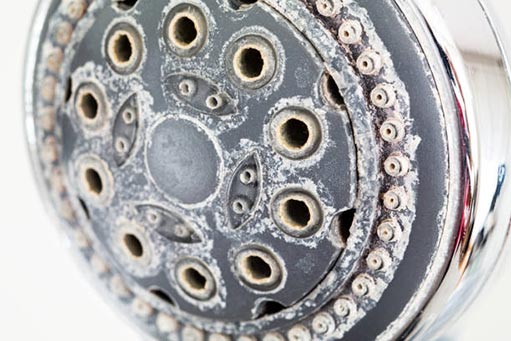
One of the lesser-known facts about plumbing systems is that water can impact the longevity of plumbing pipes. The water inside your plumbing does not have a passive relationship with the components of the system; it can impair the function of your plumbing, notes GoodDoors Property Management team.
That mostly happens when the water in your area is hard. Hard water does not refer to water in a frozen state. Hardness is a term used to describe the quality of water. “Hard water” is water with large quantities of dissolved minerals inside.
When water is described as “hard”, it means it has high levels of magnesium and calcium ions. The presence of these minerals does not alter the color of water or make it unsafe for human use. But it can hurt your plumbing system.
Why does water become hard?
Rainwater is usually pure when it falls from the sky, but as soon as it touches the ground, the quality of that water is altered. Rainwater absorbs minerals from the surrounding soil and rocks as it flows over the ground surface and into aquifers.
If those rocks have a high proportion of calcium and magnesium, these minerals are dissolved in the water, changing it to hard water. The level of hardness depends on the mineral content of the rocks. That is measured in milligrams per liter (mg/L) or grains of mineral per gallon (GPG).
The following scale is used to classify water according to its hardness level:
- 0 – 60 mg/L: soft water
- 61 – 120 mg/L: moderately-hard water
- 121 – 180 mg/L: hard water
- Over 181 mg/L: very hard water
Factors that determine if water is hard and its hardness level are the geological processes that form the underlying soils and rocks in a region and if the water comes from wells or aquifers in contact with mineral deposits deep inside the earth’s crust.
Impact of hard water on plumbing systems
Scaling
The primary effect of hard water on plumbing systems is the buildup of scale deposits within the system. Scaling occurs when the minerals in hard water – mostly calcium carbonate – are deposited inside the pipes and appliances.
This process severely impairs the plumbing’s performance and the function of those appliances connected to the plumbing. Common problems associated with scaling include reduced efficiency of the water heater and leaky valves.
Scale buildup in water heaters leads to higher energy costs. That is because scale prevents efficient heating of water. At the same time, it predisposes the unit to overheating. Water heaters with large buildup of scale are more likely to explode.
Scaling also reduces the internal diameter of pipes. Narrowed pipe channels result in reduced water flow. It will also cause causes spikes in water pressure that can weaken pipe joints and shorten the lifespan of the appliances in the building.
Soap scum
When hard water comes into contact with soap, it forms a chalky residue known as soap scum, which adheres to the surface of plumbing fixtures as a thin grey or whitish film. Because it is insoluble and resistant to soap, soap scum is very hard to remove.
Moreover, by producing suds in water, soap scum transforms simple tasks like washing into a difficult ordeal. When water is hard, more soap is needed for a clean wash. Along with the time-cost of this problem, soap scum forces you to waste money.
If allowed to build up, soap scum can encourage mold growth. It will serve as a breeding ground for bacteria and a source of bad odors in your home or office. Soap scum is a leading and often-overlooked cause of drain clogs and blockages.
Higher overall costs
In addition to causing buildup on plumbing fixtures, hard water makes glasses and dishes look dirty by leaving spots on them. The overall impact of these problems is diminished aesthetics that can affect the value of your home or business.
Homes and offices with hard water should clean their plumbing fixtures more often. Hard water also causes increased wear on clothes. Replace plumbing fixtures and appliances prematurely because hard water makes them fail faster.
What to do about hard water
The best way to solve the water hardness problem is to install a water softener. While it is also possible to use water-conditioning products for this problem, those are only good for mildly hard water. On the other hand, water softeners can deal with all levels of water hardness.
What kind of water softener do you need?
Water softeners vary by their methods of operation. There are salt-based water softeners, salt-free water softeners, magnetic water softeners and ion exchange water softeners. Water softeners also vary by size. It is also essential to know what you’re treating before you buy one.
Questions about the kind of water softener you need can be answered by a licensed and reputable plumber. Speaking with an expert will help you avoid costly mistakes when installing a water softener in your home or office.
